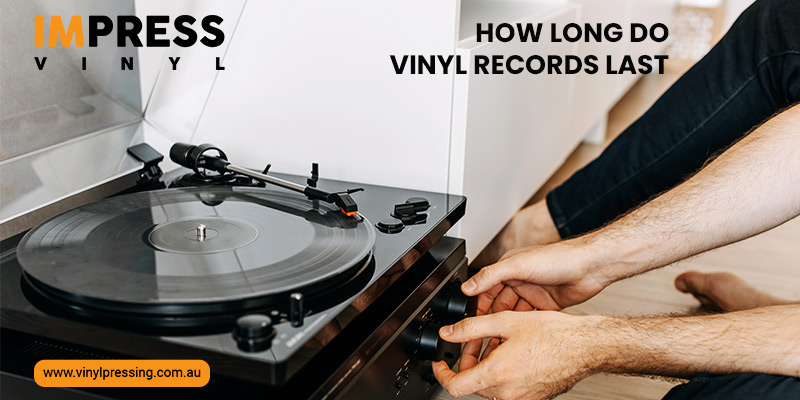How Long do Vinyl Records Last? How to Extend its Lifespan
Let’s start by understanding the basics first. What are vinyl records, exactly? Vinyl records are essentially just revolving discs that are used to store music. These analog music storage devices are typically 12 inches, 10 inches, or 7 inches in diameter and have imprinted modulated spiral grooves. Originally, these records were constructed of a material called shellac and were known by the names phonograph disc records, gramophone records, or just records.
Only until Polyvinyl Chloride (PVC) was used to create these recordings, around the middle of the 2000s, did the term “vinyl records” start to catch on. Records are played and recorded using record players, also known as turntables, phonographs, or gramophones.
To start taking care of these records, we first delve deeper into the issue of how long vinyl records last and how to prolong the life of your records. There are several variables that affect Vinyl’s lifetime.
Some claim that records can remain in good condition for more than 100 years with proper use and maintenance. If you’re referring to how long it takes for records to decay, it might take up to 1000 years. In this blog, we’ll discuss how many times you’ll be able to get plays out of your custom vinyl records, how to prevent records from wearing out rapidly, and how to best take care of records to ensure they last as long as possible.
How long do Vinyl Records last
Under ideal circumstances, vinyl records can last more than 100 years. PVC, the material used to make vinyl records, takes thousands of years to break down. Maintenance, humidity conditions, UV exposure, storage, and the equipment used to play the record are factors that affect a vinyl record’s longevity. Vinyl records can endure for a very long time with proper preservation.
Here are some main reasons why records wear out: –
Maintenance and Preservation
Many novice vinyl record collectors and turntable enthusiasts are unaware of the importance of a vinyl record’s general cleanliness for its existence. To extend the working years of your records, you must ensure that they are kept clean and clear of debris, dust, and fingerprints.
Humidity and Moisture
Unexpectedly, if you don’t store your vinyl in an environment with the right humidity levels, your records will be positively charged, collecting more dust, grime, and other detritus. Although part of the static charge produced by humidity can be reduced by employing a carbon brush or vinyl cleaning kit, it will still exist.
UV light
A vinyl record’s overall lifespan is also impacted by sunshine (UV light) exposure. Vinyl records may warp and become deformed if they are exposed to sunshine or high temperatures for a long period.
The material begins to lose its resilience when the temperature hits 140° Fahrenheit (60° Celcius), which causes the conventional round, flat shape to distort.
Stacking Records
Your records should ideally be kept vertically. Store them separately, never stack them. By doing this, pressure may increase, and the records may warp as a result.
Cheap Equipment
The equipment used to play the records is another factor that affects their overall lifespan. While a less expensive turntable might initially appear like the better choice, you significantly increase the risk of irreparable damage.
The most common cause of this is groove wear. The record may be harmed if there is excessive friction between the grooves and the stylus or needle. The grooves eventually become unusable because of wear and quality loss over time.
How to make your records last!
You probably want to find out how to take care of your records now that you are aware of the basic factors that lead to vinyl record degradation. To achieve maximum longevity, make sure you pay attention to the following vital factors:
Handling
When handling records, avoid touching the grooves with your fingertips; instead, hold them by the circular paper label in the middle of the record’s outside edges.
Records should not be stacked, exposed to sunlight, or kept in environments with high humidity or mold risk. They should always be placed in their vinyl record sleeves after every time you use them.
Cleaning
After each usage, always clean your vinyl with the proper tools and solutions.
Platter
Make sure the platter has completely stopped before removing or putting in vinyl.
Quality Equipment
Make sure your tonearm has a counterweight and a good stylus if you want to keep your records spinning for years.
No more worrying about your Vinyl Records!
Now you have all the information you need to take care of your records and make sure they last as long as possible. You can walk into any record store without any worries because you’ll know exactly what equipment to pick up in order to preserve your records.
On the other hand, if you’re looking to elevate your collection, you can get in touch with Impress Vinyl to witness the best custom vinyl pressing in Australia. At Impress Vinyl, we have 20+ years of experience delivering high-quality projects at amazing prices.



Comments
Post a Comment